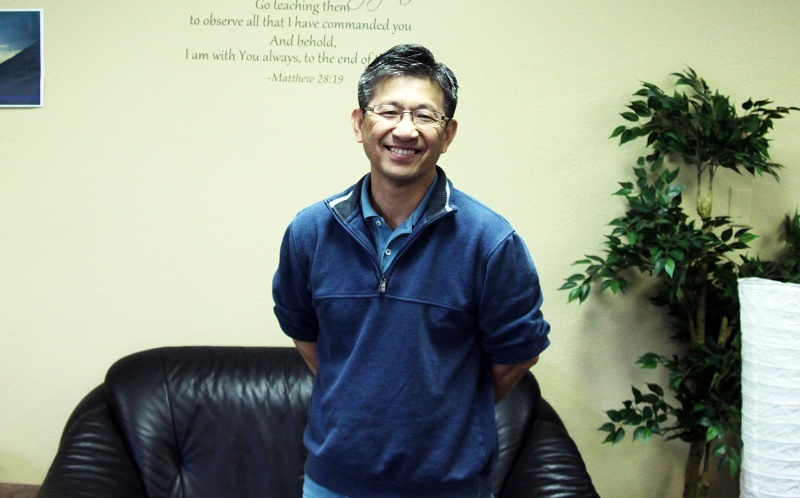

Pastor Steve Chang, the lead pastor of Living Hope Community Church in Brea, shared his thoughts regarding the dynamic between the Korean and English ministries in the Korean immigrant church context.
In the discussion on how the Korean church should operate, there are many different perspectives on what the best model could be. Some may say that an independent, English-speaking, Korean American church is the best model. Others might argue that, going even further, a church that reflects the multi-ethnic community around the church is more important.
Pastor Steve Chang is the lead pastor of Living Hope Community Church, an independent church in Brea, CA with a large Korean-American and Asian-American attendance. He believes that there is no one best model, and that each kind of ministry serves different callings and reaches different kinds of people. This is especially important when considering the relationship between the Korean ministries (KM) and English ministries (EM) in Korean immigrant churches.
Some believe that the relationship between the pastors of the KM and EM is the most important aspect that contributes to a healthy KM and EM dynamic. Pastor Steve, who has had experience serving in the Korean immigrant church context prior to pastoring at Living Hope, also believes that the relationship is indeed important, but he said the key to understanding the issues that may arise between the two ministries is the fact that they serve two divergent purposes and callings.
"Why does a Korean church exist in America? It has a completely valid reason to exist - to reach the Korean immigrant people that an American church cannot reach. The goal of the Korean-speaking church is to reach Korean speakers, and anything that hinders that detracts from the church fulfilling its primary goal."
"Then what is the purpose of an EM?" he then asked.
Pastor Steve went on to explain that most pastors who go into serving English ministries at Korean churches will go in with the calling to serve an English-speaking, Korean American congregation, and to do it with excellence. The EM pastor also believes that if he is successful, the EM will be able to reach the multi-ethnic community. And though that may be the outspoken intention of the senior KM pastor in hiring the EM pastor as well, subconsciously, there may be an underlying assumption that the EM actually exists to primarily support the overarching purpose of the Korean immigrant church - to reach and minister to Korean immigrants. Thus, the EM pastor is expected to be an assistant to the direction of the KM, and not an independent directional leader.
Hence, once the EM thrives in such a way that it may hinder the KM, then it may start to hinder the Korean church's overarching purpose to reach Korean-speaking immigrants.
"Both KM and EM pastors are trying to be true to their calling, and to do so excellently, and the more they are successful, the greater the likelihood that they will diverge from each other," he explained. "And when you have two diverging purposes, there are bound to be problems, no matter how well-intentioned the people may be. They're just different in what they believe their calling to be. I think it's vastly unfair to attribute it to sin or selfishness."
Does that mean EMs should be gotten rid of? Completely not, Pastor Steve said.
"Until children leave home, I believe the family and the church of that family have a responsibility to reach and minister to the children," he explained. "So the EM is still very necessary for Korean churches in order for the next generation to transition into adulthood. But is it possible to maintain a vibrant EM in the long run into adulthood? I think it'll take a great deal of humility and active adjustment in order to maintain a healthy KM-EM cooperation."
He went on to explain that in about 15 to 20 years, the Korean churches will see a phenomenon in which English-speaking, Korean American pastors will come of age, and will be able to "go toe to toe with a Korean speaking elder board," but right now, that's not possible in most Korean-dominant churches. At that point in time, Korean churches can decide whether the Korean or the English speaking congregation will set direction and purpose.
Another possibility is that as the children of Korean-speaking parents grow in the English ministries of Korean-speaking churches, they can transition out into Korean American independent churches as they approach adulthood.
However, Pastor Steve emphasized that it's important not to denigrate other ministries. He said that there are specific people that EMs under Korean churches are able to reach, that independent churches are able to reach, and that multi-ethnic churches are able to reach. Each ministry and church simply have different callings, and reach different people.
"So you can't blame a Korean immigrant church for not being effective with the Spanish-speakers in their neighborhood, because that's not their primary purpose or primary giftedness," Pastor Steve added. "It would be akin to blaming the Spanish-speaking church for not having a Korean-speaking service. We also have to be careful of idolizing multi-culturalism, and from denigrating others' ministries."
"Churches shouldn't be discouraged by their weaknesses, but be encouraged by their strengths."
This is one in a series of interviews with southern California pastors who either serve in English ministry (EM) or have a heart for the intergenerational relationship within the Korean church. As the generation of the Korean church leadership is shifting from the first to the second generation, what are the obstacles that are hindering the English ministry from flourishing? How can EM and KM pastors work together to build up the second-generation church? These are among the many questions that these pastors grapple with, and that Christianity Daily is hoping to wrestle together with through these interviews.


















